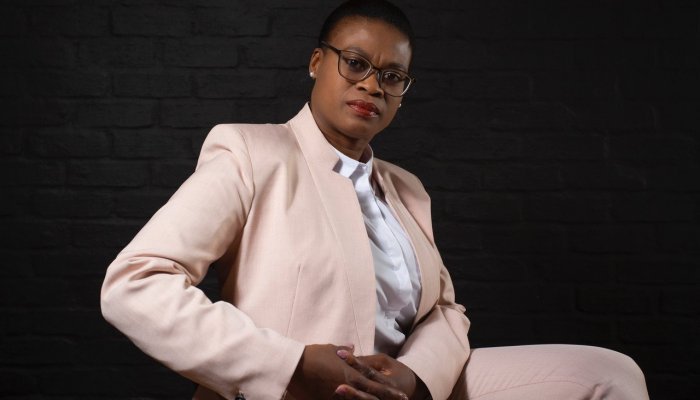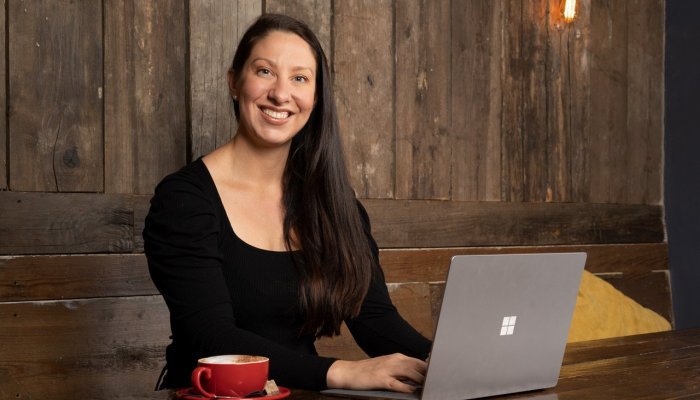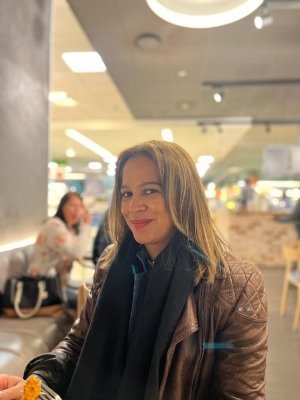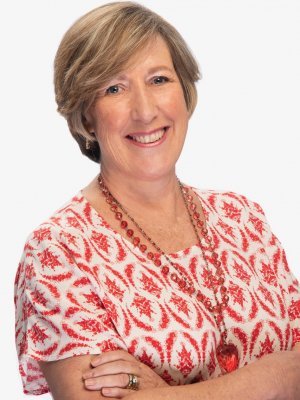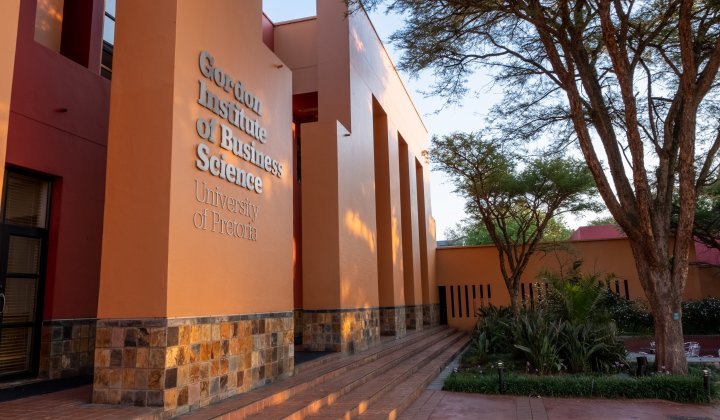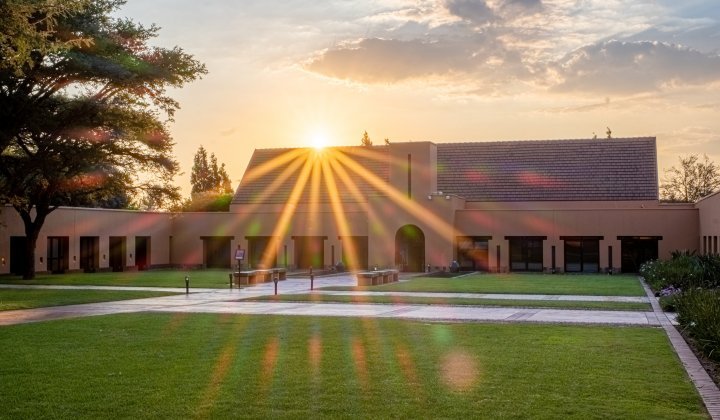The presence of women in science, technology, engineering and mathematics (STEM) increased some 50 years ago, but after the 1990s, this has slowed down, resulting in a significant gap for future professions and production needs.
In South Africa, less than 13% of women choose to study in STEM disciplines, with men accounting for up to 28%, according to the Global Gender Gap Report 2021.
“If we are to achieve meaningful global economic growth, we need a workforce with exceptional STEM skills, and women should make up a significant portion of the talent in science and innovation,” says Mustafa Soylu, Defy CEO.
STEM drives innovation, social well-being, inclusive growth, and sustainable development globally, yet gender inequality hinders the increase in women in STEM fields and industries, says Soylu.
He says in research and innovation, for example, long-standing prejudices and gender stereotypes are pushing women farther away from science-related fields, adding that the potential of women is not realised.
Data from countries falling under the Organisation for Economic Co-operation and Development (OECD) show a huge gender difference in the fields of study chosen in tertiary education. For example, less than 30% of engineering and 20% of science graduates are women, with only 40% of women with STEM degrees in the field, according to OECD.
Female participation is lagging in STEM fields in most countries. A report by the United Nations Educational, Scientific and Cultural Organisation (Unesco), titled ‘Cracking the code: Girls’ and women’s education in STEM’, indicated that only 35% of STEM students in higher education globally are women. Young women also comprise only 25% of students in engineering or information and communication technology (ICT).
Girls bear the burden of gender stereotypes and roles and are typically the first to drop out of secondary education, resulting in missing opportunities to further their education. This is according to Phemelo Segoe, client manager of Tuta-Me at Optimi Workplace, one of South Africa’s leading education and training providers.
Segoe says the lack of role models for girl learners from underrepresented and marginalised communities results in fewer women ending up in STEM-related careers.
“There is a need to improve the awareness of science, technology, engineering and mathematics skills among primary and secondary school learners,” says Segoe. Additionally, schools should have the necessary infrastructure, such as science labs and computer centres, and appropriately qualified teachers for STEM subjects.
“Encouragement from teachers and parents to pursue STEM careers, as well as job shadowing, are some of the initiatives that can help increase women’s representation in STEM industries,” she says.
Segoe says having support programmes for under-resourced communities through appointing women to management positions in STEM industries and providing mentorship and training opportunities will increase the number of women in STEM overall.
Global phenomenon
The poor representation of women in STEM industries is not unique to South Africa, says Dr. Vivienne Spooner, GIBS faculty leader.
“Globally, educators and policy-makers are grappling with this issue where the phenomenon is termed ‘leaky STEM pipeline’, and women are the most underrepresented in these subjects and more likely than men to drop out,” says Spooner. This happens with high school learners, undergraduates and graduates, and even during their STEM careers.
Early childhood experiences influence women’s willingness to be involved in STEM-related industries and ultimately affect girls' career choices. “Girls and women who had exposure to the STEM industry through family members or teachers are more likely to show a willingness to be part of the industry and pursue a career path in this sector,” says Spooner, adding that global studies reveal that gaps in science knowledge start opening at a young age with more girls increasingly choosing not to study science subjects. These girls would much rather study to become teachers than astronauts, for example.
Data from the European Union reveals that in higher education, women account for more than half the number of enrolments, but in STEM subjects, this proportion is 12.5% compared with 37.5% for men.
In sub-Saharan Africa, women make up 30% of researchers in science fields compared to a global average of 28%. In addition, women in Africa represent over half of the science graduates at bachelor’s degree level (53%), with master’s level accounting for 43% and 28% at PhD level, according to various research.
Spooner says apart from the leaky STEM pipeline, several women globally have contributed significantly to the STEM industry, yet little or nothing is known about them. Moreover, regarding research contribution, men are prominently featured and have better chances of being promoted to leadership positions than women.
“Business schools can play a role in helping students critique the meritocratic logic that leads to persistent inequalities in organisations,” Spooner points out.
Digital transformation
Charlotte Fuller, a global digital transformation coach, says while there is an increasing percentage of women in STEM-focused research positions, this is yet to translate into positions of authority and leadership.
“Women and girls need to be supported with the relevant education and skills to be competitive and take up digital positions within their chosen careers,” says Fuller.
Globally, digital transformation has become a norm leading to increasing demand for STEM workers amid limited skills available, says Rochelle Elmirinthia Blaauw, skills development and localisation lead at Tata Consultancy Services South Africa.
Blaauw says curbing the skills shortage should start at primary school by sparking girls' interest in STEM subjects. She points out that about 39% of core skills required across occupations in South Africa are technology-driven. Therefore, schools should teach coding and set up skills development centres to provide hands-on training to students.
Fuller says women with STEM degrees who enter the STEM workforce face even steeper barriers to success, as the sector is still male-dominated. However, more women will enter and stay in the sector if organisations create more inclusive and diverse environments that support women.
She says that support could include prioritising gender diversity through recruitment, encouraging a fair culture of succession and structural support that allows women to move up and ascend to leadership positions, and developing mentorship programmes that provide learning and development opportunities.
Thriving in the STEM industry
Anthea Dennis, a civil engineer at Sasol Secunda Operations, was lucky that her father, teacher and school encouraged her interest in STEM-related fields. Growing up in Eldorado Park in Gauteng, maths was an accessible subject that could help anyone.
Initially, Dennis wanted to be a pilot. When she started her studies at the University of Johannesburg, she planned to major in electrical engineering and IT before switching to civil engineering. However, she faced some challenges, including a lack of access to resources and people working in STEM industries. She was lucky to get a bursary from a company that offered social support to the township school where her father taught.
More men were studying engineering, and over the years, this grew disproportionately as more women dropped out of studies, she says, adding that some challenges facing women in the STEM industry or those starting remain the same. However, she has found that being consistent, aligning with like-minded people, and helping those starting out have helped her career.
She says the dearth of mid-career and senior engineers to mentor young talent in South Africa is worrying, emphasising the importance for young women entering the field to join a company with a strong intern or graduate development programme to give their careers a solid foundation.
Dennis says young women entering the STEM field should find a purpose to guide their journey and understand the value they can bring to the world, be curious, remain teachable and always be open to learning.
With 10 years of experience as a qualified civil engineer, Dennis is a mentor through Sasol’s bursary programme aimed at Grade 12 high-performing mathematics and science learners. The all-inclusive bursaries are for studying engineering and science at approved public universities and universities of technology.
“The bursary programme gives learners access to a large network of STEM professionals and real-world work experience.”
Dennis recently completed the Management Acceleration Programme at INSEAD, and she is a member of the South African Institution of Civil Engineering (SAICE) Highveld Branch.
Education interventions
Promaths
The programme, run by Investec, provides extra tuition in maths and science to learners in grades 10 to 12 at selected schools across South Africa. This key initiative gives girls the same access and support as boys.
Defy WE-inTech
The 12-month programme is open to South African women currently enrolled in their third or fourth year of undergraduate studies in engineering, science, or technology. It includes new generation research and development, workshops, project delivery and mentorship opportunities with career opportunities in technology and innovation at Defy.
Tata Consultancy Services (TCS) educational programmes
The organisation has several initiatives to help close the STEM skills gap, such as the Girls Who Code programme to expose more girl students to the world of coding and tech development.
The Vodacom #CodeLikeAGirl
Annually, girls between 14 and 18 participate in the #CodeLikeAGirl programme aimed at inspiring more girls to explore careers requiring coding skills to help them get a start in the STEM sector. Over 2 000 girls in South Africa have been trained since launching in 2017.
Sasol Bursary Programme
For over 30 years, Sasol has been giving bursaries for engineering and science degrees to high-performing mathematics and science Grade 12 learners. Recipients also have the opportunity to do paid vacation work and be part of the Sasol Development Programmes when they complete their studies.


